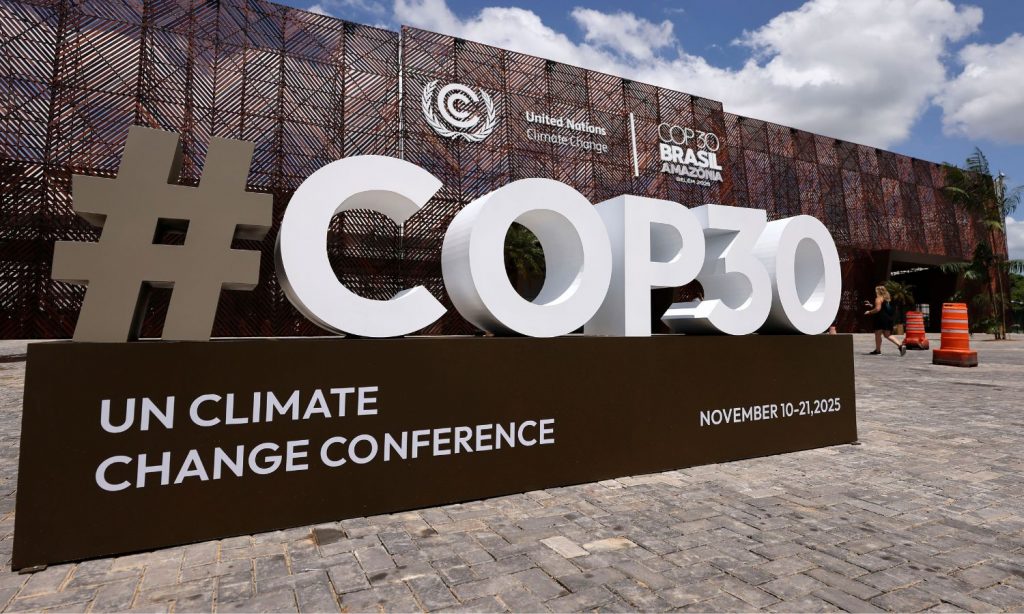As COP30 enters its second week in Belém, Brazil, the summit’s tone has shifted from opening optimism to determined urgency. UN Climate Change Executive Secretary Simon Stiell set the stage, urging delegates to show that “climate cooperation can stand firm in a fractured world.” With negotiations intensifying, here’s what’s shaping the agenda and what it means for business, the UK, and the packaging sector.
COP30, developments and focus
Key topics such as finance, adaptation, nature conservation, and industrial decarbonisation are taking precedence on the agenda in week two:
Finance and Adaptation: The Crunch Point:
- Adaptation finance continues to be a central point of discussion at the summit. Developing countries are pushing for a new global goal of $120–150 billion per year by 2030, but donor nations are only on track for about $25 billion. The disparity is significant, and advancements in this area will serve as a critical measure of COP30’s credibility.
- The Global Goal on Adaptation (GGA) is advancing, with negotiators working on a list of 100 indicators to measure resilience, ranging from access to water and early warning systems to heat-related mortality. These metrics will help track real-world progress, not just promises.
Nature, Forests, and Indigenous Leadership:
- The launch of the Tropical Forest Forever Facility (TFFF) has been a headline moment, aiming to reward countries for keeping forests intact and directing funds to Indigenous Peoples and local communities. Over $5.5 billion has been pledged, but this falls short of the $25 billion target.
- Civil society groups and Indigenous communities are making their voices heard as they call for greater recognition of their rights and a complete transition away from fossil fuels.
Energy, Industry, and Decarbonisation:
- The ‘Clean Energy Ministerial Future Fuels Action Plan’ has broadened its scope, now with 23 countries endorsing the commitment to increase sustainable fuel usage fourfold by 2035.
- Ministers adopted the Belém Declaration on Global Green Industrialisation, setting a framework for low-carbon manufacturing, technology transfer, and sustainable supply chains.
UK Delegation and Partnerships:
- The UK delegation, led by Prime Minister Keir Starmer and Energy Secretary Ed Miliband, has focused on clean energy, partnerships, and global leadership. The UK Pavilion is a hub for international collaboration and innovation, reflecting the country’s commitment to Net Zero and climate finance.
Strategic Implications and Emerging Opportunities for the packaging industry
While the headlines focus on finance and forests, COP30’s outcomes have direct relevance for the packaging industry:
- Supply Chain Resilience: The summit’s emphasis on adaptation and resilience highlights the need for robust, sustainable packaging solutions that protect products and communities during climate-related disruptions.
- Circularity and Innovation: The launch of the Global Circularity Protocol empowers companies to measure and manage circularity impacts, moving beyond linear models. For packaging businesses, this means new benchmarks for recycling, material efficiency, and transparent reporting.
- Industry Leadership: The World Packaging Organisation’s presence at COP30 signals the sector’s growing influence in climate negotiations. Responsible packaging is now recognised as essential for achieving UN Sustainable Development Goals, especially those related to food security and climate action.
What’s next?
As COP30 moves into its most critical phase, the world is watching to see if negotiators can bridge divides and deliver on the promise of climate cooperation. For businesses and the packaging sector, the message is clear: resilience, innovation, and collaboration are essential, not just for climate goals, but for long-term competitiveness.

Image source https://blog.ucs.org/delta-merner/recognizing-and-resisting-obstruction-at-cop30/
How Aura Can Help
As COP30 highlights the urgent need for climate cooperation, resilience, and innovation, Aura is ready to support you in navigating these challenges. Our expertise in sustainable packaging, supply chain resilience, and circularity means we can help you assess the environmental impact of your packaging, stay ahead of evolving regulations and make a meaningful impact. Aura offers tailored solutions and strategic guidance to help you lead in a rapidly changing world. Get in touch to explore how we can work together towards a more sustainable future.
Wonder what all this means for the packaging industry? So do we. Let’s keep the conversation going and progressing with packaging improvements that we know can deliver positive impact. Get in touch to discuss how Aura can help you navigate the road ahead.


